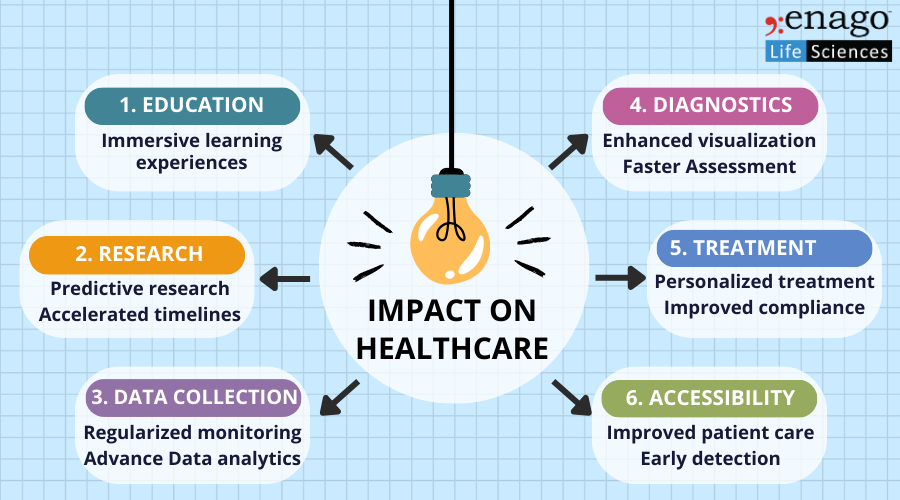Discover groundbreaking healthcare research that is bridging the gap between the lab and real life, revolutionizing the future of medicine.
Table of Contents
Medical research and evolving healthcare practices are constantly pushing boundaries and reshaping the way we approach patient care. These advancements not only improve treatment options but also offer hope for those in need. At
Advances in Personalized Medicine
Personalized medicine is revolutionizing the healthcare industry, allowing doctors to tailor treatments to individual patients based on their genetic makeup and specific health needs. Recent breakthroughs in genomics, precision medicine, and targeted therapies have opened up new possibilities for personalized care.
Genomics, in particular, has played a crucial role in identifying genetic markers associated with certain diseases, enabling doctors to predict a patient’s likelihood of developing a condition and tailor treatment plans accordingly. Precision medicine, on the other hand, focuses on delivering the right treatment to the right patient at the right time, maximizing efficacy and minimizing side effects.
Targeted therapies have also shown great promise in the treatment of various diseases, such as cancer. These treatments specifically target the underlying mechanisms of a disease, offering more effective and less invasive options for patients. The advancements in personalized medicine are paving the way for a more customized and effective approach to healthcare.
Emerging Technologies in Healthcare
Technology is playing an increasingly important role in shaping the future of healthcare. From telemedicine to artificial intelligence to wearable devices, innovative technologies are revolutionizing the way healthcare is delivered and managed.
Telemedicine, for example, allows patients to consult with healthcare providers remotely, reducing the need for in-person visits and improving access to care, especially in rural or underserved areas. Artificial intelligence is being used to analyze vast amounts of healthcare data to identify patterns and trends that can help diagnose diseases earlier and predict patient outcomes more accurately.
Wearable devices, such as fitness trackers and smartwatches, are also contributing to improved healthcare outcomes by enabling individuals to monitor their health in real-time and make informed decisions about their well-being. These technologies are empowering patients to take an active role in their healthcare and are transforming the way healthcare is delivered.
Research on Chronic Diseases
Chronic diseases, such as diabetes, cancer, and heart disease, pose significant challenges to patients and healthcare providers worldwide. However, ongoing research is leading to promising treatments and therapies that are improving outcomes and quality of life for individuals with these conditions.

Image courtesy of lifesciences.enago.com via Google Images
Advancements in the treatment of diabetes, for example, have led to the development of new medications and technologies that help individuals better manage their blood sugar levels and reduce their risk of complications. Similarly, research in cancer therapy has resulted in targeted treatments that specifically attack cancer cells while sparing healthy tissue, leading to better survival rates and fewer side effects.
Research on heart disease has also yielded new insights into prevention and treatment, highlighting the importance of lifestyle changes and early intervention in managing the condition. These developments in chronic disease research are offering new hope to patients and paving the way for more effective treatments in the future.
Mental Health Research
Mental health research is gaining increasing recognition for its importance in overall well-being and patient care. Advances in therapy, pharmacology, and holistic approaches to mental health are transforming the way mental health conditions are treated and managed.
New therapies, such as cognitive-behavioral therapy and mindfulness-based interventions, are proving to be effective in treating a wide range of mental health disorders, from anxiety to depression to PTSD. Pharmacological research, on the other hand, has led to the development of medications that target specific neurotransmitters in the brain, reducing symptoms and improving quality of life for individuals with mental health conditions.
Furthermore, holistic approaches to mental health, such as yoga, meditation, and art therapy, are gaining popularity for their ability to promote overall well-being and reduce stress and anxiety. Combining traditional and alternative therapies, mental health research is offering new avenues for individuals seeking support and treatment for mental health conditions.
The Future of Healthcare Research
The future of healthcare research is filled with exciting possibilities and opportunities for innovation. As technology continues to advance and our understanding of medicine deepens, we can expect to see even greater advancements in patient care and treatment options.
While challenges may arise, such as ensuring equitable access to healthcare advancements and addressing ethical considerations in medical research, the potential benefits for patients and society as a whole are immense. By staying informed about the latest developments in medical research and evolving healthcare, we can all contribute to a healthier and more prosperous future.
At

